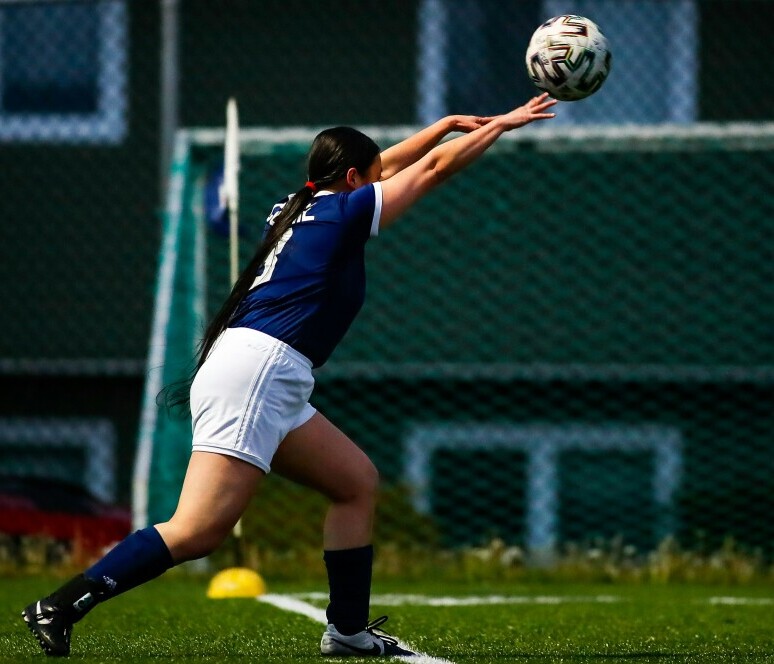
Soccer is no joke when it comes to physical demands—it’s an intense mix of sprinting, strategic playing, and if you’ve ever been on that field, you know it requires some serious stamina. This blend of physical and mental exertion calls for more than just practice. Here’s the kicker: nutrition isn’t just a side dish; it’s right there on the main course when talking about soccer performance.
When you fuel right, you’re supporting your body in ways that go beyond just energy. Good nutrition boosts your endurance, helps with agility, and sharpens your on-field performance. It’s like having a secret weapon that you didn’t even know you were missing. By getting the right nutrients, you’re prepping your body to last longer under the intense demands of the game, reducing that pesky fatigue that can hit during those crucial moments.
We’re not just talking short-term benefits here. A well-balanced diet can have some serious benefits for your overall health and even career longevity. It’s about ensuring your body is ready for those important plays today, and also safeguarding it for the years ahead. Taking nutrition seriously means investing in your health both on and off the field, keeping you at the top of your game till you decide to hang up those boots.
Macronutrients: Building Blocks for Energy and Recovery
Carbs, proteins, and fats—these are the big guns of nutrition and they’re pretty important when it comes to playing soccer. Each one of them plays a unique role in how well you perform and recover, so let’s break them down a bit.
Carbs are your best friend when it comes to energy. They’re like that power-up in a video game, providing the juice you need to keep running faster and longer. If you’re skipping out on carbs, you’re waving goodbye to stamina. Loading up on the right kinds of carbs before a match or training session helps store energy in your muscles, ready to be unleashed when you’re sprinting down the field.
Now, proteins are the repair crew. After you’ve pushed your muscles hard, proteins jump in to help fix and build them up stronger. Consistent intake of proteins is crucial for muscle repair and growth. Whether you’re tackling an opponent or kicking that winning goal, healthy muscles are key, and proteins are the foundation.
Balancing fats is equally important. They’re not just there for energy in longer sessions; they also play a part in absorbing key vitamins that your body needs. Choosing the right kind of fats helps optimize your performance without feeling sluggish or weighed down.
Incorporating the right balance of these macronutrients in your diet ensures your body can perform at its best and bounce back quickly after a rigorous game or training session. It’s like assembling the ultimate toolkit to conquer the challenges of the pitch.
Timing is Everything: Meal Planning and Nutrient Timings
Planning your meals and knowing when to eat can be a game-changer for any soccer player. It’s not just what you eat, but also when you eat it. Timing your meals right can boost how you feel during a match and speed up recovery afterward.
Think of your pre-game meal as setting the stage. You want to eat something that’s high in carbs and moderate in protein about 2-3 hours before you hit the field. This gives your body enough time to digest and gives your muscles the energy they’ll need. Something like pasta with a light sauce or a chicken sandwich usually works great and won’t weigh you down.
Once the final whistle blows, it’s all about recovery. Refueling within 30 minutes to an hour post-match is crucial for repairing your muscles and replenishing glycogen stores. A mix of carbs and proteins is ideal—think yogurt with fruit or a protein shake with a banana.
Don’t forget daily meal planning. Consistently eating balanced meals throughout the day keeps your energy levels steady and equips your body to put up its best performance every time you step onto the pitch. Maintaining this routine isn’t always easy, but it’s worth it for the results.
Proper meal planning and nutrient timing wrap up the fuel your body needs, making sure you’re always ready to tackle what’s next, whether on the training ground or in critical match moments.
Hydration: The Often Underestimated Factor in Athletic Success
Let’s talk about something you might overlook: staying hydrated. It’s a huge part of playing soccer—more than you’d think for just being about water.
Keeping hydrated is crucial for your physical and mental performance during a game. When dehydration kicks in, it can mess with your focus and reaction times, making it harder to keep up while also risking cramps and injury.
Recognizing when you’re dehydrated is key. If you feel dizzy, tired, or have a dry mouth, those are signs you need to drink up. Don’t wait until you’re thirsty to drink water.
Getting into the habit of maintaining optimal hydration is smart. Start hydrating a few hours before the game, keep sipping throughout, and make sure to replenish lost fluids after it wraps up.
Sports drinks can be useful, especially in longer matches, as they help replace electrolytes lost through sweat. But water should always be your go-to.
Never underestimate what good hydration can do—it’s not just about quenching thirst; it’s about keeping you sharp and on top of your game from start to finish.
